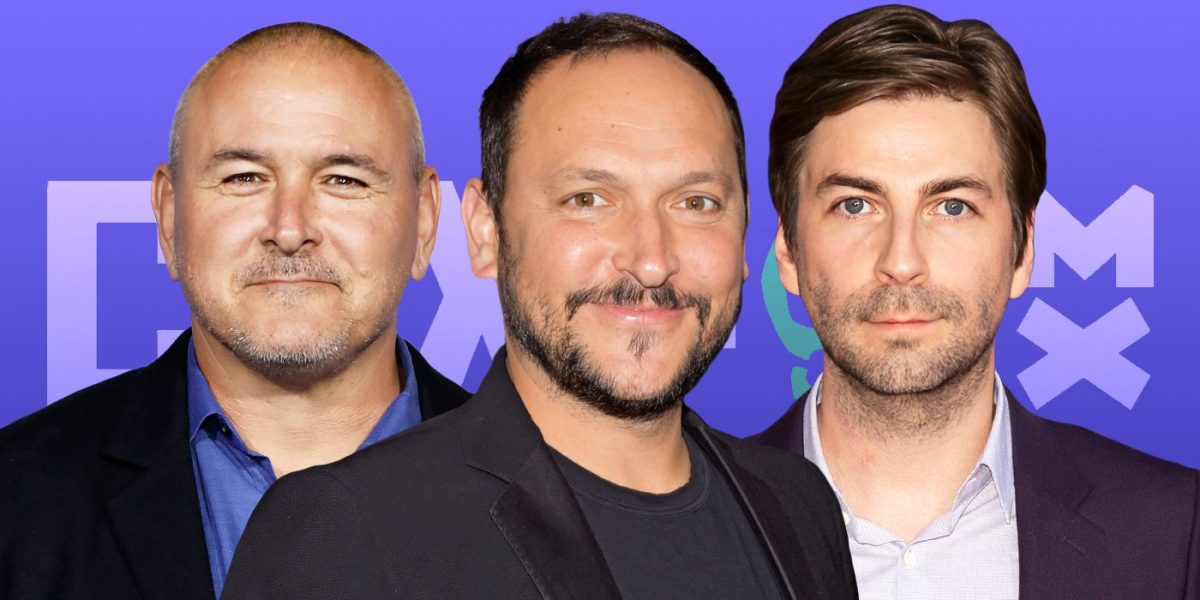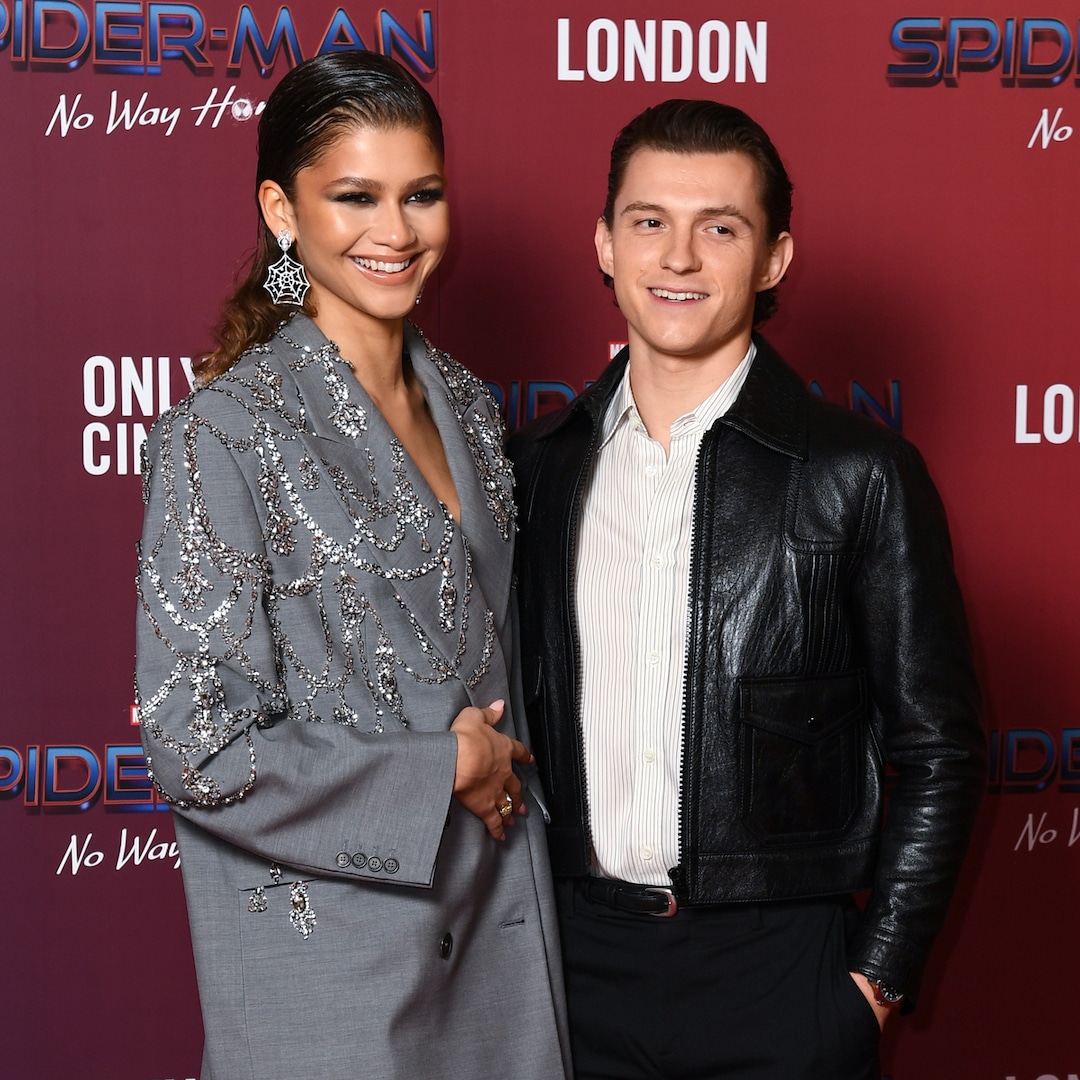
Jon Watts, Louis Leterrier, and Tim Miller Say This Is What’s Next for Hollywood
Jun 25, 2024
The Big Picture
Collider’s Steve Weintraub hosts our Directors on Directing panel at CCXP Mexico with top directors Jon Watts, Louis Leterrier and Tim Miller.
The trio discusses the challenges filmmakers face getting movies made in Hollywood today, franchises and IP versus original material, and technology that can change the future of moviemaking.
They also talk about future projects, offer insight into the collaborative nature of filmmaking, difficult action sequences, changes made to past films, and tons more.
At this year’s debut CCXP Mexico, Collider’s Steve Weintraub had the opportunity to take our Directors on Directing panel to Mexico City, where Jon Watts (Spider-Man: No Way Home), Louis Leterrier (Fast X) and Tim Miller (Deadpool) joined us in an extended conversation about the state of the filmmaking industry, their hopes for the future, and upcoming projects. If you haven’t had the chance to attend one of our panels, Directors on Directing is an opportunity to catch up on the work of some of your favorite filmmakers and to demystify the role of a director.
It’s no secret that movie productions are massive undertakings that require the expertise of hundreds of talented people to bring one singular vision to the screen. More often than not, however, there’s one name attached to the project, whether it’s soaring at the box office or “bombing,” and that’s names like Steven Spielberg, Christopher Nolan, James Cameron, etc. These panels offer us a rare peek behind the scenes into video village, on the other side of the lens, where, typically, one visionary is corralling and organizing an overwhelming amount of ideas from their crew to best serve the overall picture.
CCXP is Brazil’s (and also now Mexico’s) response to San Diego Comic-Con. It’s a huge convention that invites fans to celebrate entertainment across all mediums — comics, movies, television, books, video games, and more — and hosts opportunities to meet the biggest names and experience exclusive sneak peeks and merch. At this year’s first-ever CCXP Mexico, Watts, Leterrier, and Miller opened up about past projects, upcoming features, what it’s like being a director in Hollywood right now, and so much more.
We also received some surprise questions from the directors’ colleagues and peers, including Dave Franco (Love Lies Bleeding), Natalia Reyes (Terminator: Dark Fate), Sam Esmail (Leave the World Behind), Daisy Ridley (Star Wars: The Force Awakens), Diego Boneta (Terminator: Dark Fate), David Leitch (The Fall Guy), Bryce Dallas Howard (Jurassic World Dominion), Shane Black (Iron Man 3), and Simon Pegg (Mission: Impossible – Dead Reckoning).
Meet the ‘Directors on Directing’ Panel
Each of the three directors selected for CCXP Mexico has directed installments of some of Hollywood’s biggest franchises. All three of them, Jon Watts, Louis Leterrier, and Tim Miller, have guided crews through the phases of production, maneuvered striking action sequences, and put their hearts into creating spectacles that would sate the appetites of fans.
For Watts, who began his career with short films and music videos for artists like Fatboy Slim and Death Cab for Cutie, his breakout came with Sony’s Spider-Man: Homecoming, which introduced Tom Holland’s Marvel-adjacent friendly neighborhood hero, and went on to direct the sequels, Spider-Man: Far From Home, and Spider-Man: No Way Home. Leterrier’s breakout is a little more difficult to pinpoint because he’s had a hand in numerous genres, like working with Jason Statham on The Transporter, the second film in the MCU’s Phase One, The Incredible Hulk, and most recently, the high-octane, penultimate installment, Fast X. Miller currently has two feature films under his directing belt, coming out of the gate swinging with Deadpool and Terminator: Dark Fate. He’s a self-proclaimed fan himself who approaches his work with the utmost respect for his crew and a clear idea of what he’s looking for in adaptations of beloved IPs.
Even Directors Geek Out About Their Movies
“You sometimes have out-of-body experiences…”
Image by Federico Napoli
So, what is it actually like stepping on set as the director for big blockbusters? To the average moviegoer, the director is a big pull. If you see Martin Scorsese attached to a movie, a pretty large crowd is likely to follow that feature from headlines to theaters. It’s hard not to see creators leaning forward in their director’s chair, watching the monitors, and equating them to masters of their craft beyond the magic of moviemaking, but according to Leterrier:
”
You sometimes have out-of-body experiences when you realize that you’re on the biggest set you’ve ever been on with the greatest movie stars, with every tool and every toy.
But in the end, you laser-focus on what you need to get. That never changes. It doesn’t matter if you have visual effects or no effects or if you have one actor or 2,000 extras.”
In fact, no matter how masterful a director is, a movie is always equal to the sum of its parts. A set is a fine-tuned, well-oiled machine, but only when the individuals working on it, like the cinematographer, the costume department, visual effects, and editors, are able to put their best work forward. To bring all of that work together into one cohesive idea, Miller says, “The skills that you really need are the skills you need in everyday life. You need to get people to go in the direction you want them to go without hating you, and you need to have a vision for what you want to make, and people will follow it.”
So, again, we ask: what is it really like being a director of a big picture? Leterrier elaborates on Miller’s point, saying:
“Moviemaking is very collaborative. It’s all about collaboration. We’re not painters, we’re not sculptors, we’re not photographers. We’re movie directors.
We need a crew of 10, 50, 100, 500 people, but they all follow us, in a sense, just to bring a vision to life.
It’s actually a really emotional moment when you realize. You stop, you look around, and everybody’s doing what you had in your head. That’s the best feeling in the world.”
Blockbusters, Budgets, & Box Office Bombs – Oh My!
“Something is happening, and it’s scary out there.”
Custom Image by Jefferson Chacon
“The best feeling in the world,” however, can be significantly marred now that the landscape of the industry is experiencing a shift. The future of cinema has been a hot topic for years, and that conversation has only gotten buzzier post-COVID and post the WGA and SAG-AFTRA strikes in 2023. Streaming is arguably one of the greatest hurdles movie theaters face, but when it comes to quality film and original ideas, it often comes down to money. Due to demands, the relationship between a filmmaker and their movie is on unsteady ground. From the expense it takes to make a feature film to numbers at the box office, these directors weigh in.
On the one hand, Leterrier looks at opening weekends and waning audience numbers and suggests:
“It all depends on the box office. If the world goes to see movies, then movies are fine. The problem is that now, because there’s so much to see in different ways, it doesn’t mean that people are watching fewer movies, but if they watch them differently, the movies that have gotten very expensive
because of visual effects, because of crews, because of salaries of actors, everything has gotten a little bit too expensive.
I think the system is readjusting itself. It’s not disappearing, it’s readjusting itself, but something is happening, and it’s scary out there.”
Watts, whose Spider-Man trilogy grossed a total cume of nearly $4 billion worldwide and whose No Way Home was the first movie to kick off theaters reopening their doors post-pandemic, says getting the greenlight for movies that audiences want to see comes down to bravery within the studios. The price tag of a big blockbuster will never change, but the initiative to take chances can:
“Movies are expensive. It just comes down to brave people who are able to write that check or greenlight that movie to say, “You know what?
Let’s try something different or try something unique, or encourage a new voice.
” That’s what you need. It’s cyclical, I think. A really interesting movie will come out and then suddenly everyone is really interested in making interesting movies. Then they get nervous again and they start making more old-fashioned stuff, I guess you’d say. It comes down to the people in those positions of power being able to greenlight things that are good.”
As for Miller, who began in animation and has carried his joy for it, comics, books, and film with him throughout his time in the industry, he had this to say about getting passion projects made:
“There hasn’t been anything that I’ve ever made that was easy to get made. I directed
Deadpool
when I was 50, and I’d been trying really hard. Hundreds of meetings and decades of trying and failing to get a movie made. I do think that every rejection, for me, was a little knife in the back that I used to try harder. I didn’t feel like it was unfair or that I didn’t deserve the shot. It just meant that maybe I wasn’t ready, or maybe the timing wasn’t right.
My biggest advice to filmmakers is to keep showing up.
Don’t stop. You’re going to have a lot of rejections before you get accepted, if you ever get it. I feel like one of the luckiest people on the planet to have gotten a chance to make a movie.”
Is the Movie Industry Overloaded With IP?
As far as what scripts directors take on or are offered, one of the biggest debates among creators and audiences alike is how many more sequels, remakes, and reboots we need. In a time of franchises and big IPs (intellectual property) being pushed, it becomes less about the singular material and more about what will drive audiences to the theaters on opening weekend. A safe bet, according to studios and ticket sales, is rehashing what has performed well in the past, and, based on hits like Top Gun: Maverick and Jurassic World Dominion, that’s sequels, franchises, and beloved IP.
Is the consensus then that IP is bad, and we should be championing more original work? When asked what IP he’d love to tackle, Watts — whose original film Wolfs, starring George Clooney and Brad Pitt, hits theaters this September — rebuffed the idea. “I don’t want to take on an IP. I want to come up with my own original ideas.” He did admit that if he had to choose, he’d love to helm something from A Nightmare on Elm Street, but that he “would really, really have to think about it.” He goes on to say:
“I don’t think people want to see something that’s exactly what they think it’s gonna be. That’s what AI can do. AI can give you exactly what you think you’re going to see, and that sucks.
The whole point of making movies is to make something original, something that no one has ever seen before
, and I think people just have to keep being reminded that when a great movie comes out, people go to see it because it’s great. The crutch of IP gets in the way of people making more original stuff.”
Leterrier took a different approach to the subject, marrying the idea of IP and original works, suggesting that perhaps the problem isn’t IP itself but that we simply need new works to expand on.
“I think every IP today is stuff that was an original movie in the ‘70s, ‘80s, ‘90s, and early 2000s. I want to go back to that moment in cinema where every week you had
Back to the Future
,
Ghostbusters
,
The Matrix
. Your mind was blown every week. I’m directing
Fast & Furious 11
, I’m not going to criticize that, but I say
let new movies become IP, and new movies become franchises.
”
At the opposite end of the spectrum, Miller, who’s only directed from existing IP, advocated for adapting beloved works. “I love books and comics almost more than I love movies.” He continued, “As someone who reads a lot, there’s an endless amount of cool shit out there that can be adapted.” But that isn’t to say he doesn’t see where people like Watts are coming from. Miller adds, “I understand the reason there’s a mix. Studios have to make money. If you look at the economics, a single big hit movie makes more money than a lot of medium-sized or small movies, so it’s hard to argue with that. Even though, as filmmakers, we all want to make new ideas and take risks.”
The panel addresses these issues and so much more, including updates for each of their upcoming projects, like Star Wars: Skeleton Crew, Fast X: Part 2, and Love, Death & Robots Season 4. They share their toughest action sequences, big scene changes that altered their overall movies, technology that can change the future of filmmaking, and tons more. As for the state of moviegoing and cinema on the big screen, Watts says, “I think it speaks to this idea of needing a shared, communal, emotional, cathartic storytelling experience. That’s what movies are and will always be. I don’t think they’re going anywhere.”
You can watch the full Q&A in the video above this article, and for our WonderCon Directors on Directing panel with Radio Silence, David Leitch and Wes Ball, check out the video below.
Publisher: Source link
Jennifer Lopez Finally Understands Mi Gente Latino Meme
Jennifer Lopez Finally Understands Mi Gente Latino Meme Kicking off 2025, J.Lo is now promoting Unstoppable, a new biography drama in which she stars alongside Moonlight actor Jharrel Jerome. At the 2011 American Music Awards, Jennifer won Favorite Latin Artist…
Jan 11, 2025
Tom Holland's Dad Shares Insight Into Zendaya Engagement
Tom Holland became the greatest showman for his proposal to Zendaya. Just days after the Spider-Man actress turned heads at the 2025 Golden Globes with a 5-carat ring on that finger, Tom's dad... Disclaimer: This story is auto-aggregated by a…
Jan 11, 2025
Aubrey Plaza Issues Statement After Jeff Baena’s Death
The 40-year-old star and Jeff’s family issued a statement to People on Monday, where they called their loss an “unimaginable tragedy.”The Los Angeles County coroner’s office previously determined that Jeff died by suicide in his LA home. He was 47…
Jan 10, 2025
Jill Duggar’s Husband Clarifies Where He Stands With Jim Bob Duggar
Jessa Duggar (m. Ben Seewald)Jim Bob and Michelle's fifth child, Jessa Duggar, was born Nov. 4, 1992. Jessa met Ben through church and he began courting her in 2013—the old-fashioned approach to romance coming as a brand-new notion to a lot…
Jan 10, 2025











